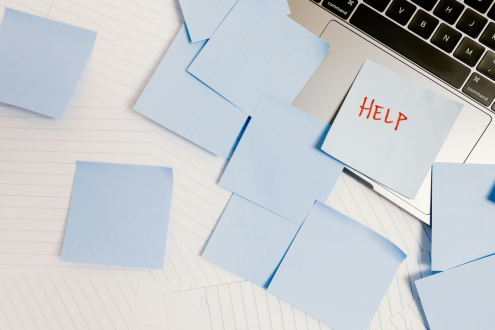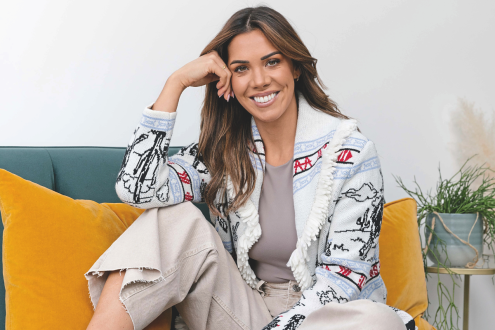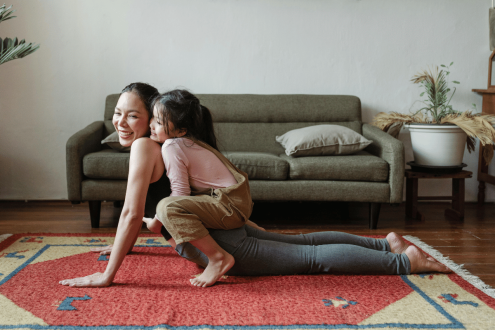Myleene Klass: ‘For so long we’ve been invisible. Now we’re front and centre’
Myleene Klass talks to Psychologies editor Sally Saunders about miscarriage, her MBE, and breaking down taboos.

Myleene Klass talks to Psychologies editor Sally Saunders about miscarriage, her MBE, and breaking down taboos.
Words: Sally Saunders. Images: Abaca Press / Alamy
There are a few times when I’ve pinched myself, metaphorically speaking at least, since working at Psychologies. But perhaps none more so than when I sat discussing my two miscarriages with Myleene Klass. For one thing, I’ve probably only discussed those experiences in detail with a handful of people. I’ve tried to shield my two older children from it, and since we had the joyful good fortune of following two devastating miscarriages with two wonderful rainbow babies, I’ve felt forced to kowtow to the usual, socially accepted narrative of keeping quiet, moving on, trying to leave that pain in the past.
But speaking to Klass, recounting my experience of first a chemical pregnancy (lost just a few days after a positive pregnancy test) followed, a few months later, by a truly heart-rending missed miscarriage that wasn’t picked up until our scheduled 12-week scan, it all came flooding back. I shared it with her, and now, with you. This is the power Klass has, and why she was recognised a few weeks ago in the New Year’s Honours List with an MBE: she is bringing miscarriage out of the shadows and smashing the taboo around this most female of issues.
Of course, the classical musician-turned-popstar-turned-campaigner wouldn’t have chosen to become known for this subject at this stage in her career. ‘I never set myself on this, this pathway. In fact, it was something I definitely shied away from at first,’ she explains.
She first told us the story of her miscarriages and the anxiety they added to her subsequent pregnancy back in 2021. She appeared in Psychologies back then, at the start of her campaigning journey, as she released her documentary, Myleene: Miscarriage and Me.
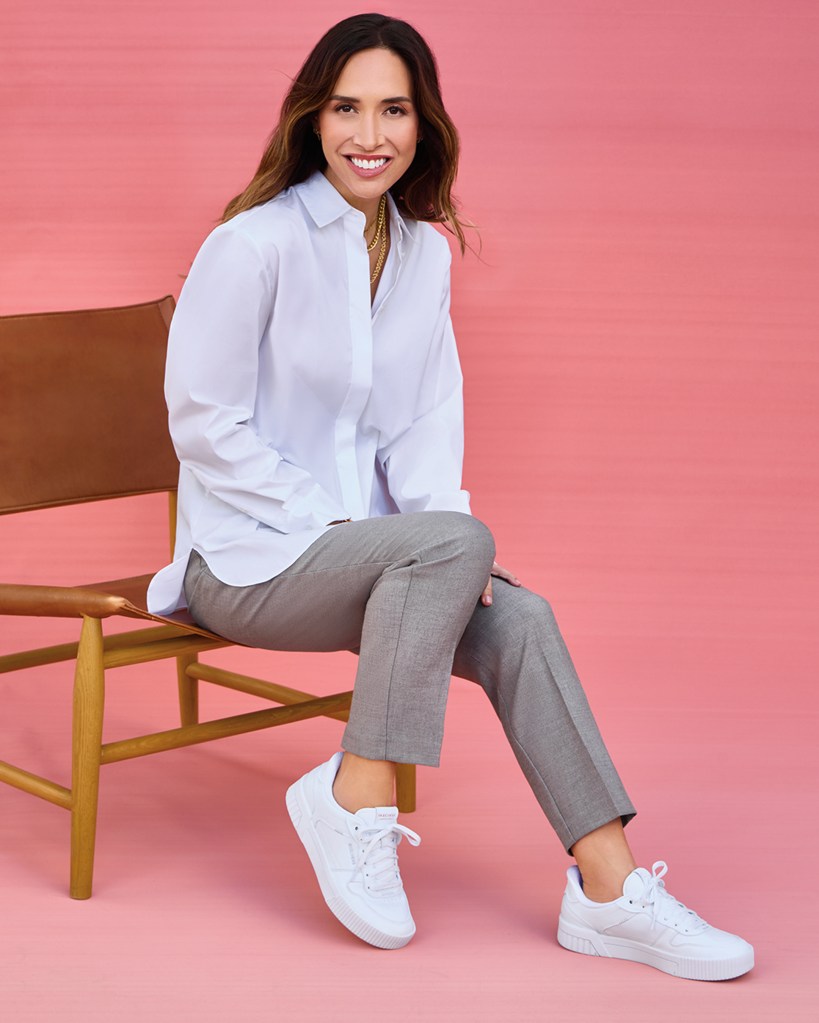
‘I really had to think long and hard about if this was something that I could relive, retell, keep ripping that Band-Aid off,’ she explains now. ‘I felt ashamed to say I’d had a miscarriage at first, when the camera started rolling. I couldn’t say the words. I turned to the documentary makers and said, “I don’t think I can do this.”
‘They just said, “Why are we here?” I couldn’t say I’ve had a miscarriage. I couldn’t say the words, it was too painful, it stuck in my throat. ‘It’s like saying I failed. I have no problem with failing, but to be talking about it felt embarrassing and vulnerable. You don’t want to put yourself into that situation, but I had to put myself there. I had to make myself vulnerable to be able to then gain the strength from it.’
It’s this combination of strength and weakness that has carried her forward and made her one of our most vocal campaigners in the area of women’s health and reproduction.
‘I’m a very capable woman,’ she says. ‘I’ve got most of the tools that I require, from literal tools to be able to fix a house or a car all the way through to getting myself out of situations that have been quite interesting, but this one really took me to another place. I was so completely out of control, and I had no answers. I had nowhere to turn. I didn’t know what to do.
‘Nobody knew how to help me, and I thought that if I ever found myself out of this situation, I’d never let my children experience it, and that’s why I think that’s where the drive comes from. I don’t want my children, either my daughters or my son, to ever experience the helplessness that I felt.’
This feeling was what spurred the 47-year-old on to look for answers, but the feeling of helplessness was quickly replaced by anger.
‘We are bearing the brunt for superstition and the way that women have been treated through the centuries,’ she says. ‘This is the misogyny that is present all the way through female health care. Even today, in 2025, we are still suffering at the hands of old wives’ tales and misinformation and things that were passed down in order just to provide answers when there weren’t any. Now we’ve got every medical intervention we could possibly get our hands on, and we still don’t utilise it because we are bound by these old wives’ tales.
‘I asked one consultant, “Why do we have to wait for three consecutive miscarriages before we can have exploration? Why three?” And he said, “Well, there is no logical or physical reason. In America, the number is two.”
‘So it is literally a case that somebody way back in the day, stuck their finger in the air and just decided which way the wind was blowing.’
Determined to shine a light on this issue, and when her documentary was BAFTA-nominated, she continued to speak out. She teamed up with charity Tommy’s and MP Olivia Blake to change the UK’s system of care, including a move toward a graded model of care so parents no longer need to wait until a third miscarriage before they receive any type of support.
‘I am in a position where I can make a noise,’ she says. ‘I can lobby governments. I can speak to parliamentarians. I can actually get into Westminster and have really important, difficult conversations. I have a vested interest, because I’ve been that woman miscarrying and sobbing in a clinician’s room.’
And she has now been recognised for her work with her MBE. How does that feel?
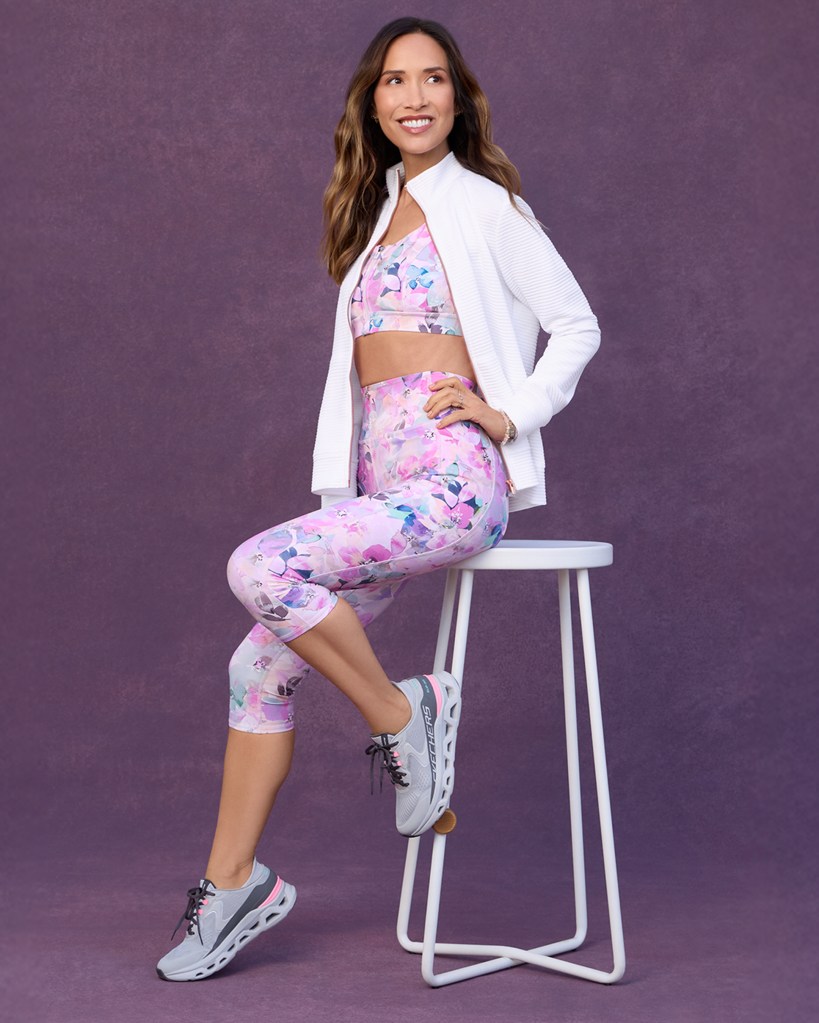
‘It’s a huge relief, because it gives me a little bit of light in the darkness,’ she explains. ‘Every conversation is around losing babies and bereavement and grief and trauma and PTSD, and there’s just never any light in these conversations. It just feels like battle after battle.
‘So to have the recognition and to bring a little bit of light is really positive. Now the Palace knows of my miscarriage and charity work. Now Westminster knows of that work, and I can use this MBE and this honour, and talking about it like this, to get us to the next stage.’
She adds: ‘I feel really empowered, especially now that I’ve had the MBE, because it shows women that for so long, we felt invisible, and now we’re very visible. Now we’re front and centre.
‘That word that I couldn’t say a few years ago, now I’m saying nearly every hour. Women are using this word in their kitchens to speak with their families. It’s not a taboo. People are having these conversations at work now. Employers are having to talk about it, because it’s out there.’
She says it’s also carrying into her work with clothing and footwear brand Skechers, which is providing another way for her to reach people with her message. ‘They are so supportive,’ she says. ‘I got a phone call yesterday saying they’re changing all the branding to say “Myleene Klass MBE”, isn’t that amazing?
Again, she’s shining a light on issues that are overlooked, from the plight of women suffering miscarriage to the needs of other groups to be given simple tools to live more easily. And it’s not something she’s going to stop doing anytime soon, but how does she protect herself when she’s carrying this emotional burden?
‘I’ve had to be very, very strong of mind,’ she says. ‘I’ve had to really reset myself at the end of the day, and I’ve had to put my boundaries in and be really careful about them, and I haven’t always done that. But I have no problem now saying the word “No”, to protect myself, to protect my family, to protect my peace.
‘I’ve learned that, it sounds like therapy speak, but I’ve learned to say if it interrupts my peace, it doesn’t come in. But I’m a woman in her 40s now, and I can say that. I don’t know if I could have said things like that in my 20s.’
She adds: ‘I just think, all of this has opened up from being able to film that really difficult documentary, and to then be able to try and change legislation and march on Westminster and on Parliament, and now to get that recognition. Everything’s moving in the right direction, and everyone recognises one thing, and it’s that changes don’t happen in the surgery. They happen in Westminster. But they’re happening.’
She might have shot to our attention a couple of decades ago on a TV talent show, but it’s in this work she’s shown her true talent. We need brave women like her to speak out, to start conversations for the rest of us. Thanks to her I have finally shared my story with you. I hope she gives you the courage to share your story — whether it is about miscarriage or anything else — and we can join together to keep breaking the wall of silence. In an age when reproductive rights are ever more at the centre of our conversations, the ability to speak about them openly, without fear or shame, is a something we cannot ignore.
Myleene is a brand ambassador for Skechers. Follow her on Instagram @MyleeneKlass
